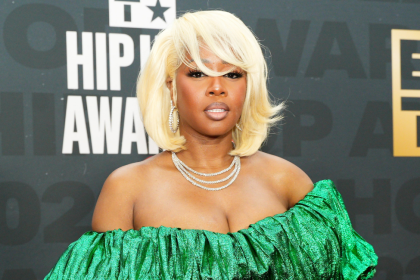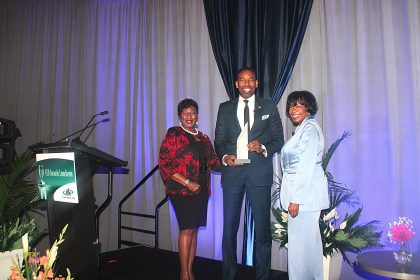David Jonsson “didn’t see a space for himself” in the industry before he won the BAFTA EE Rising Star Award. The recognition comes at a time when diversity in the film industry has become an increasingly important topic of discussion, with the award historically serving as a launching pad for emerging talent in British cinema.
The 31-year-old actor took home the publicly-voted accolade after beating off competition from Marisa Abela, Jharrel Jerome, Mikey Madison, and Nabhaan Rizwan and admitted that admitted that getting such an award was never his motivation to succeed. The EE Rising Star Award has previously launched the careers of numerous successful actors, including Tom Hardy and John Boyega, who have gone on to achieve international acclaim.
“Thank you God, thank you to my team. Thank you to the directors who have taken a chance on me,” Speaking live on stage at the Royal Festival Hall on Sunday (16.02.25), he said. The Royal Festival Hall, a historic venue on London’s South Bank, has hosted the BAFTAs since 2017, becoming synonymous with celebrating British film excellence.
“Thanks to my family and my loved ones, you know who you are.”
“I’ve got to be honest, this isn’t why I do it. I’m just an East London boy who didn’t really see a space for me in this industry.” East London has produced several notable actors in recent years, contributing to the changing face of British cinema and helping to break down traditional barriers in the entertainment industry.
David claimed that continuing to “tell stories” will be the answer to helping people from all backgrounds succeeded within the industry. His statement reflects a growing movement in the film industry to diversify storytelling and representation both on and off screen, encouraging new voices to emerge and share their unique perspectives.
“But this award is about the people and as long as we keep telling stories about people, I think there will be a space for me, and you, and you and you and everyone watching at home.” The BAFTA ceremony was broadcast to millions of viewers worldwide, highlighting the global reach of British cinema and its influence on international filmmaking.
The award came after David’s star turn in ‘Alien: Romulus’ – which follows two siblings as they as they join forces with a group of fellow young space colonists – and dedicated his award to “the people” who just want to try something a little bit unorthodox in life. The film, part of the iconic Alien franchise, has already generated significant buzz in the industry for its fresh approach to the beloved science fiction series.
“I’d like to dedicate this to the people, the dreamers, the grafters, and the people who are just trying to do it a little bit different. Star, I don’t know, but rising? I guess…” His humble acceptance speech resonated with many aspiring actors and filmmakers watching the ceremony, reinforcing the importance of perseverance and authenticity in pursuing creative careers.
Jonsson’s victory marks a significant moment in British cinema, as he joins an illustrious list of previous Rising Star winners who have gone on to achieve remarkable success in the industry. The award has become known for identifying breakthrough talent and helping to shape the future of British film.
The actor’s journey from East London to BAFTA recognition represents the changing landscape of British entertainment, where traditional barriers to entry are gradually being dismantled. His success story serves as inspiration for young actors from diverse backgrounds who may not see themselves represented in mainstream media.
His role in ‘Alien: Romulus’ has been particularly praised by critics, with many noting his ability to bring depth and authenticity to the science fiction genre. The film has garnered attention for its diverse casting and innovative storytelling approach, demonstrating the industry’s evolution toward more inclusive narratives.
The BAFTA ceremony itself celebrated the next generation of British talent, with Jonsson’s win symbolizing a broader shift in the industry towards recognizing and nurturing diverse voices across all genres and platforms. His success highlights the importance of creating opportunities for underrepresented talent and the value of authentic storytelling in contemporary cinema.














